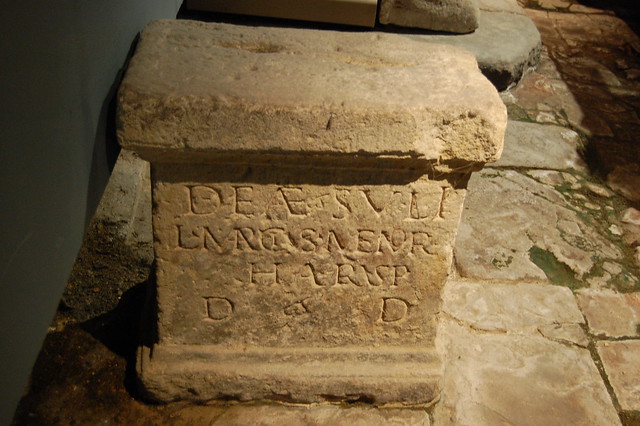(h)aruspex /(h)ə-RU-speks/. noun. Ancient Roman soothsayers who made predictions based on an inspection of the entrails of sacrificial animals. Plural: haruspices. See also haruspical/haruspicate (belonging to, or having the function of, a haruspex). From Sanskrit hirâ(entrails) + Latin spic (beholding, inspecting).
“‘Am I to be frightened’, he said, in answer to some report of the haruspices, ‘because a sheep is without a heart?’” (J.A. Froude)
“He sat with his stricken gaze still turned to the window and the day’s bright tumult outside. I looked at our plates, haruspicating the leavings of our lunch. They did not bode well, as how should they?” (John Banville)
“Never forget that you can put your clothes back on and leave the institution before the doctor arrives to read your future in your organs, the modern haruspicy that exorbitant insurance barely covers.” (Ben Lerner)
“I part you like a crossroads and fear the god of eloquence and thieves. When you kissed me, my heart was in my mouth, you tore it out to read it, haruspex you.” (Jeanette Winterson)
“To communicate with Mars, converse with spirits,
To report the behaviour of the sea monster,
Describe the horoscope, haruspicate or scry,
Observe disease in signatures, evoke
Biography from the wrinkles of the palm”
(T.S. Eliot)
“Except newspapers you know get in, and with them the idiotic haruspicating and scrying going on in My country, warwards. How can grownup men make such fools of themselves? But on every level.” (William Gaddis)




